Getting your PC built with the best motherboard around is a critical part of the process. The CPU, GPU, RAM, and other components are important, but it's the motherboard that holds them all together. It's easy to make the wrong choice with a motherboard, which is why we rounded up some of the best motherboards right here to help you make the right choice.
8 Best Motherboards in 2020
- ASUS ROG Strix X570-E Gaming — Best AMD: 2.5Gb LAN, PCIe 4.0, ASUS AURA, M.2 heatsinks, 14+2 phases VRM
- ASUS ROG Strix Z490-E Gaming — Best Intel: 2.5Gb LAN, ASUS AURA, M.2 heatsinks, 14+2 phases VRM
- GIGABYTE TRX40 AORUS Master — Enthusiast AMD: 8x DIMM slots, unbuffered RAM support, massive heatsinks, 16+3 phase VRM
- ASUS ROG Maximus XII Hero Z490 — Enthusiast Intel: Wi-Fi 6, 5Gb LAN, ASUS AURA, 14+2 phase VRM
- Gigabyte X570 I AORUS Pro WIFI — ITX AMD: 1Gb LAN, 2x DIMM slots, Intel Wi-Fi, M.2 slot, 8 phase VRM
- ASUS ROG Strix Z490-I Gaming — ITX Intel: 2.5Gb LAN, Wi-Fi 6, 2x M.2 slots, 2x DIMM slots, 8+2 phase VRM
- ASUS TUF Gaming B550-PLUS — Budget AMD: 2.5Gb LAN, ATX, AMD CrossFireX, 8+2 phase VRM
- MSI MPG Z490 Gaming Plus — Budget Intel: 2.5Gb LAN, 2x M.2 slots, 12 phase VRM
What are the best motherboard for AMD and Intel?
Deciding on AMD or Intel for your processor (or already having one inside a rig you plan to upgrade) narrows the search for a new motherboard considerably. Intel motherboards come with Intel chipsets that only work with processors from the company, likewise with AMD. You cannot physically install an Intel CPU on an AMD motherboard or vice-versa. For most people, the ASUS ROG Strix X570-E Gaming for AMD or ASUS ROG Strix Z490-E Gaming for Intel will provide high stability and performance, allowing the rest of your PC to perform at their advertised potential. The ASUS TUF Gaming B550-PLUS or MSI MPG Z490 Gaming Plus will help you save some money, while the GIGABYTE X399 AORUS PRO or ASUS ROG Maximus XII Hero Z490 are for those with deep pockets and high expectations.
Then you have specific chipsets from Intel and AMD that only work with certain processors. The X570 is best used for AMD Ryzen 3000 series processors. Intel's Z490 is good for 10th and 11th Gen processors. Take a gander at our full list of best motherboards to see which one best suits your PC build plan.
1. ASUS ROG Strix X570-E Gaming: Best Overall Motherboard for AMD PCs
Bottom line: Thanks to high-quality components, some serious heatsinks for the VRMs, and the best chipset from AMD make the ASUS ROG Strix X570-E Gaming one of the best motherboards available for AMD PCs in terms of value. It doesn't deliver all the features you'd find in enthusiast-grade boards, but this is about as good as you can get for a desktop motherboard.
Socket: AM4 | Maximum RAM: 4x 32GB (128GB) | Chipset: AMD X570 | Size: ATX | Features: 2.5Gb LAN, PCIe 4.0, ASUS AURA, M.2 heatsinks, 14+2 phases VRM
| Manufacturer | Version | Vendor |
|---|---|---|
| ASUS | ROG Strix X570-E Gaming | $296 at Amazon |
| ASUS | ROG Strix X570-E Gaming | $296 at Newegg |
Pros:
- Quality components
- Works with Ryzen 3000 CPUs
- Gorgeous PCB design
- Cool Aura RGB effects
- Stable overclocking capability
Cons:
- Aura RGB can be glitchy
- High temperatures under load
The motherboard is super-important, but it's also challenging to get it wrong, so long as you buy one that matches the CPU you intend to install. If we're choosing one that strikes a delicate balance between performance and price for AMD fans, it would be the ASUS ROG Strix X570-E Gaming. AMD's Ryzen generation of processors are dominating Intel, and the best motherboard for us from ASUS is a perfect match.
This isn't the most capable AMD motherboard, but you likely won't require all the additional features that come with splashing out on the most premium motherboards around. The AM4 platform is what has been used by AMD since Ryzen launched in 2017, and the X570 is the latest high-end chipset from the company. This platform will support not only Ryzen 3000 processors that are out now but also 4000 series set to launch sometime in the future.
It's possible to install up to a maximum of 128GB RAM, using the four DIMM slots provided, though the likelihood of you requiring any more than 32GB is a stretch since only intensive workstations that handle huge files (video editing, for instance) need such large amounts.
The best part about the ROG Strix X570-E is the high-quality components used throughout. This is one of the more critical factors of choosing a motherboard, as well as a solid power delivery setup. Capacitors and other performance components should be part of a premium batch for enhanced reliability and better support for overclocking.
The rear port selection is pretty good for 2020 too. ASUS included DisplayPort and HDMI (for Ryzen CPUs with integrated graphics), Optical S/PDIF out, 2.5Gb LAN, Wi-Fi, seven USB 3.2 Gen 2 Type-A ports, as well as an additional USB 3.2 Gen 2 USB-C port. You can easily hook up all your favorite gaming accessories and then some.
You've also got RGB connectors, pump headers for water-cooling, two M.2 slots, plenty of SATA, and enough PCI slots to install all your favorite sound cards. It's not a budget motherboard, but you do get a lot for the money here. And because it's using AMD's latest chipset, you'll be able to take advantage of PCIe 4.0.
ASUS ROG Strix X570-E Gaming
Rocking a fantastic chipset, the ASUS ROG Strix X570-E is a fantastic motherboard for any Ryzen 3000 series CPU. You can install plenty of RAM and take advantage of the excellent stability and build quality.
Best Motherboards in 2020
- 1. ASUS ROG Strix X570-E Gaming (From $296)
- 2. ASUS ROG Strix Z490-E Gaming (From $284)
- 3. GIGABYTE TRX40 AORUS Master (From $495)
- 4. ASUS ROG Maximus XII Hero Z490 (From $398)
- 5. Gigabyte X570 I AORUS Pro WIFI (From $125)
- 6. ASUS ROG Strix Z490-I Gaming (From $300)
- 7. ASUS TUF Gaming B550-PLUS (From $200)
- 8. MSI MPG Z490 Gaming Plus (From $170)
When looking at a motherboard to purchase, you'll want to consider a few factors. The first is which platform do you intend to use: Intel or AMD? Next is the chipset. These determine the features (and pricing) the motherboard can have, with the X570 and Z490 being the best choice for AMD and Intel, respectively. More budget-friendly chipsets like the B450 offer incredible value.
Speaking of value, price is a consideration worth making. It's recommended you spend a fair amount on a motherboard. You want to make sure you're getting high-quality components and decent cooling for the voltage regulator modules (VRM), which can get incredibly hot during operation, especially if you plan to push the system further through overclocking. Components like the VRMs come in all shapes and sizes, and it's down to the vendor to pick high-quality electronics for a more stable motherboard.
The processor you plan on using can also be of importance. Our enthusiast pick will be overkill for an AMD Ryzen 3 3100, for instance. On the flip side, you wouldn't want to install an AMD Ryzen 9 3900X on a B450 budget-friendly motherboard, since this would prevent you from overclocking the CPU, and the system may encounter stability issues with other components, like activating an XMP profile for RAM.
Motherboards can remain relevant for as long as your processor can keep up with what you require it to do. So long as you do not need to upgrade the CPU, it's usually safe to stick with your motherboard and install some faster, higher-capacity RAM, upgrade the storage, and get one of the best graphics cards. If you tend to only buy motherboards once in a blue moon and would prefer not to buy another for a good number of years, going with our best or enthusiast recommendations provide ample headroom for expansion in the future.
2. ASUS ROG Strix Z490-E Gaming: Best Overall Motherboard for Intel PCs
Bottom line: Like the AMD best pick, this ASUS ROG Strix Z490-E Gaming is the Intel counterpart that works with the latest 10th Gen processors from team blue. It also has high-quality components and all the base features you'd expect from a mid-tier motherboard, including support for up to 128GB RAM, ASUS RGB lighting, support for pumps, and overclocking, and much more.
Socket: LGA1200 | Maximum RAM: 4x 32GB (128GB) | Chipset: Z490 | Size: ATX | Features: 2.5Gb LAN, ASUS AURA, M.2 heatsinks, 14+2 phases VRM
| Manufacturer | Version | Vendor |
|---|---|---|
| ASUS | ROG Strix Z490-E Gaming | $292 at Amazon |
| ASUS | ROG Strix Z490-E Gaming | $300 at Newegg |
| ASUS | ROG Strix Z490-E Gaming | $300 at Best Buy |
Pros:
- Good PCB design
- Reliable, high-quality components
- Supports up to 10th Gen CPUs
- Dual M.2 slots with heatsinks
- Good passive VRM cooling
Cons:
- Can get hot when overclocking
- RAM is a little tight with an AIO pump
Likewise, with our top ASUS AMD pick, the ROG Strix Z490-E Gaming motherboard is equally as good. You'll be receiving a PCB with the same high-end, premium components, as well as pretty much all the expansion you'll need for a capable PC setup. There's also pretty good 14+2 phase power delivery, which essentially means you can comfortably push this motherboard to its limit and beyond.
Supporting the latest 10th Gen Intel processors, you can take advantage of Intel's latest high-performance CPUs, throwing in super-fast M.2 NVMe storage drives, and enough RAM (up to 128GB) to run Minecraft without issue. It's possible to use the Z490-E Gaming in a premium PC build with an Intel Core i9-10900K, making this one good value platform choice.
Ports-wise, we're looking at 2.5Gb LAN, DisplayPort, HDMI, four USB 3.2 Gen 2 (three USB-A and one USB-C), two USB 3.2 Gen 1, and four USB 2.0. There's also Optical S/PDIF, Wi-Fi, and all the audio jacks you could require. Internally, ASUS made sure you have enough headers for additional components that need a USB interface.
There are also water pump headers for water-cooling setups, making the ROG Strix Z490-E one capable motherboard. Throw in a solid BIOS and remarkable overclocking potential, and you've got an Intel winner with one of the best motherboards for team blue.
ASUS ROG Strix Z490-E Gaming
The Z490 is an excellent chipset for new Intel-powered PC builds, and this motherboard from ASUS has it all at a solid price.
3. GIGABYTE TRX40 AORUS Master: Best AMD Motherboard for Enthusiasts
Bottom line: This is where you can seriously blow through your budget quickly. This motherboard has a price tag that matches that of an entire PC build. What this board unlocks is support for the latest Threadripper processors from AMD, which can sport up to 24 physical cores. There are also eight DIMM slots for ultimate RAM capacity and plenty of other useful features.
Socket: AM4 | Maximum RAM: 8x 32GB (256GB) | Chipset: X399 | Size: ATX | Features: 8x DIMM slots, unbuffered RAM support, huge heatsinks, 16+3 phase VRM
| Manufacturer | Version | Vendor |
|---|---|---|
| GIGABYTE | TRX40 AORUS Master | $480 at Amazon |
| GIGABYTE | TRX40 AORUS Master | $480 at Newegg |
Pros:
- Eight DIMM slots
- Threadripper performance
- Stable overclocking support
- High-end onboard audio
- High-quality components
Cons:
- Doesn't work with Ryzen 3, 5, 7, and 9
- Expensive
We heard you have some money to splash on your PC build. Well, this is the motherboard you should go for if you're considering AMD Threadripper. Unfortunately, due to the physical size of these advanced processors, you can't throw one into a mainstream motherboard, so enter the X399 platform.
The GIGABYTE TRX40 AORUS Master has literally everything you need to build an incredibly powerful rig. You've got full support for up to a 24-core Threadripper CPU (with 48 (!!!) threads), 8 DDR DIMM slots for quad-channel RAM, server-class power distribution for stable overclocking, and even an audio ESS 9118 Sabre DAC.
But that's not all; this thing can even support up to four GPUs, because why not? When you're planning out an enthusiast machine, the "why" doesn't play a part in the decision making. It's choosing the very best you can afford, and this motherboard will facilitate an insanely powerful AMD PC build.
The only drawback is the price, but if you're planning to buy a Threadripper CPU, this shouldn't be an issue. And with today's obscene pricing for PC components, this TRX40 AORUS Master from GIGABYTE is more affordable than our top AMD pick. Go figure.
GIGABYTE TRX40 AORUS Master
Those who love NVIDIA and its extra RTX features should find the RTX 2060 Super to be a reliable introductory card for 1080p or 1440p gaming.
4. ASUS ROG Maximus XII Hero Z490: Best Intel Motherboard for Enthusiasts
Bottom line: If you want to do some serious overclocking, the ASUS ROG Maximus XII Hero Z490 is an excellent platform with plenty going for it. It's not quite as advanced as the AMD offering for Threadripper, but you do save a little here and still get super-fast 5Gb LAN, numerous ports, and a rock-solid BIOS.
Socket: LGA1200 | Maximum RAM: 4x 32GB (128GB) | Chipset: Z490 | Size: ATX | Features: Wi-Fi 6, 5Gb LAN, ASUS AURA, 14+2 phase VRM
| Manufacturer | Version | Vendor |
|---|---|---|
| ASUS | ROG Maximus XII Hero Z490 | $400 at Amazon |
| ASUS | ROG Maximus XII Hero Z490 | $411 at Newegg |
Pros:
- Great build quality
- Fat VRM heatsinks
- Good overclocking support
- Up to 10th Gen Intel CPUs
- 5Gb LAN
Cons:
- Pricey
Like GIGABYTE, ASUS makes some enthusiast-grade motherboards for those with deep products. A motherboard like the ROG Maximus XII Hero is perfect for building a PC of your dreams, rocking a Z490 chipset. Fancy trying out the latest Intel Core i9-10900K? Go for it; this motherboard will be more than happy to come along for the ride.
This board is a serious piece of kit, reflected in the price. You've got large heatsinks across all the VRMs to keep everything cool, and these are high-quality, premium components. All this allows one to overclock their processor and system to get even more performance from their PC without sacrificing on system stability.
For ports on the rear, ASUS decided to go for 5Gb LAN (as well as a 1Gb port), HDMI, four USB 3.2 Gen 2 ports, four USB 3.2 Gen 1 ports, two USB 2.0 ports, Optical S/PDIF, Wi-Fi, and all the audio jacks you'll ever need. It's a little pricey, though. Be sure to check the specifications and decide if you really require such a platform for your PC.
ASUS ROG Maximus XII Hero Z490
If you have money to spare, motherboards like this ASUS option will perform admirably with high-end Intel CPUs. This motherboard has a whole host of useful features, including 5Gb LAN.
5. Gigabyte X570 I AORUS Pro WIFI: Best Compact AMD Motherboard
Bottom line: You don't need a full-sized ATX motherboard to build a PC. If you'd rather put together a more compact build, a motherboard like the GIGABYTE X570 I AORUS Pro WIFI would make a suitable foundation.
Socket: AM4 | Maximum RAM: 2x 32GB (64GB) | Chipset: X570 | Size: Mini-ITX | Features: 1Gb LAN, 2x DIMM slots, Intel Wi-Fi, M.2 slots, 8 phase VRM
| Manufacturer | Version | Vendor |
|---|---|---|
| Gigabyte | X570 I AORUS Pro WIFI | $220 at Amazon |
| Gigabyte | X570 I AORUS Pro WIFI | $220 at Newegg |
Pros:
- Supports Ryzen 3000 CPUs
- Small form factor
- M.2 slots
- Intel Wi-Fi
- Decent power phase design
Cons:
- Not very capable of overclocking
- Single PCIe 3.0 x16 slot
You don't need the most massive motherboard you come across to build a great PC. Smaller form factor cases are handy when you want to keep the overall dimensions of the PC low, and a Mini-ITX motherboard will help with this. By using a super-compact Mini-ITX case, it's possible to build a PC that takes up little more space than your favorite video game console.
As well as being physically smaller than ATX or micro-ATX motherboards, you retain a full PCIe slot with the Gigabyte X570 I AORUS Pro WIFI, can install two M.2 SSDs, throw in up to 64GB of RAM, and the latest Ryzen 3000 CPUs. That all sounds good enough already, but the price will also help as it's not too expensive.
And I said Ryzen 3000 series processors. That's right; you could install the Ryzen 9 3900X into this motherboard and have a small PC powered by 12 cores and 24 threads, because why not? With built-in Intel Wi-Fi, you can place a PC with this motherboard pretty much anywhere in the home.
For ports, it has the aforementioned Wi-Fi, HDMI, DisplayPort, Optical S/PDIF, two USB 3.1 Gen 2 ports (one is USB-C), four USB 3.1 Gen 1 ports, and 1Gb LAN. What you may not like about this motherboard is the single PCIe x16 slot and the lack of any functional heatsinks for the VRM. It can get hot, and you won't want to push your processor much further than factory settings.
Gigabyte X570 I AORUS Pro WIFI
The X570 chipset and Mini-ITX form factor allow you to install this board inside a toaster. It'll handle even the more powerful processors, including the AMD Ryzen 9.
6. ASUS ROG Strix Z490-I Gaming: Best Compact Intel Motherboard
Bottom line: If you want to build a compact PC, you'll want to use a Mini-ITX case and motherboard. This excellent example from ASUS has a lot of potential without all the excess baggage. Feel free to throw this board into a small case with a beefy CPU for a sleeper performance PC. RAM may be a little restrictive, but at 64GB, you shouldn't run into issues.
Socket: AM4 | Maximum RAM: 2x 32GB (64GB) | Chipset: B450 | Size: Mini-ITX | Features: 2.5Gb LAN, Wi-Fi 6, 2x M.2 slots, 2x DIMM slots, 8+2 phase VRM
| Manufacturer | Version | Vendor |
|---|---|---|
| ASUS | ROG Strix Z490-I Gaming | $290 at Amazon |
| ASUS | ROG Strix Z490-I Gaming | $300 at Newegg |
Pros:
- Small form factor
- Dual M.2 slots
- 2.5Gb LAN
- Up to 10th Gen Intel CPUs
- Wi-Fi 6
Cons:
- Pricey
Small form factor cases usually take Mini-ITX motherboards, which, when compared against ATX boards, are tiny. ASUS managed to pack many features onto the ROG Strix Z490-I Gaming, including plenty of RGB and even two M.2 slots. This small board comes with support for up to 10th Gen processors from Intel.
But don't let the small size fool you into assuming you're unable to build a capable PC with it as the foundation. The full-sized PCIe x16 3.0 slot lets you install your favorite GPU, and with up to 32GB of RAM, it'll be ready to handle most games. Just expect to pay out a fair chunk for the liberty of using a smaller platform.
ASUS made available 2.5Gb LAN, DisplayPort, HDMI, four USB 3.2 Gen 2 ports (one being a Type-C), two USB 3.2 Gen 1 ports, two USB 2.0 ports, and the Wi-Fi 6 module. That's quite the array of expansion, especially the rapid 2.5Gb LAN that will facilitate faster LAN traffic on supported networks.
ASUS ROG Strix Z490-I Gaming
Intel processor owners can also create some excellent compact PC builds, and a motherboard like this fine example from ASUS would allow exactly that.
7. ASUS TUF Gaming B550-PLUS: Best Budget AMD Motherboard
Bottom line: For those who are budget conscious, the ASUS TUF Gaming B550-PLUS is an excellent value motherboard with a focus on saving money. You've got a slightly less capable chipset in the B550M, but is more than good enough for most AMD PC builds.
Socket: AM4 | Maximum RAM: 4x 32GB (128GB) | Chipset: B550 | Size: ATX | Features: 2.5Gb LAN, ATX, AMD Quad CrossFireX, 8+2 phase VRM
| Manufacturer | Version | Vendor |
|---|---|---|
| ASUS | TUF Gaming B550-PLUS | $160 at Amazon |
Pros:
- Affordable
- Works with Ryzen 3000 CPUs
- PCIe 4.0 slot for GPU and M.2
- 2.5Gb LAN
- Cooled VRMs
Cons:
- Limited overclocking capabilities
The B550 chipset is what AMD launched to replace the aging B450 chipset. The highlight improvements are support for Ryzen 3000 series processors, PCIe 4.0 for GPUs and SSDs, and dual-GPU configurations. The ASUS TUF Gaming B550-PLUS is an excellent example with a B550 chipset, rocking some awesome features.
You could easily install a Ryzen 9 3900X without issue, and it would run just fine. There's no room for overclocking since it's simply not designed for enthusiast liquid nitrogen cooled rigs. Still, you can run an enthusiast-grade system on such a small budget-friendly foundation.
As well as supporting Ryzen 3000 processors, ASUS added in 2.5Gb LAN for rapid data transfers across your network, and the VRMs do have adequate cooling. This may be a more affordable motherboard, but you're still getting an 8+2 power phase design, meaning it can handle more power-hungry CPUs and some overclocking.
For ports, we're looking at HDMI, DisplayPort, Optical S/PDIF, two USB 2.0, two USD 3.1 Gen 2 (one is Type-C), and four USB 3.1 Gen 1 ports. For networking, you have a single 2.5Gb LAN connection. Overall, a great way to move from Intel to AMD without spending too much.
ASUS TUF Gaming B550-PLUS
Don't allow the price tag to make you think this motherboard isn't worth considering for budget-orientated builds. It's powered by the AMD B450 chipset and has plenty going for it.
8. MSI MPG Z490 Gaming Plus: Best Budget Intel Motherboard
Bottom line: the MSI MPG Z490 Gaming Plus is an interesting budget-friendly motherboard since it comes with the Z490 chipset, unlocking plenty of features to utilize in your PC build. It's not the most affordable board for Intel CPUs, but you get plenty for the price tag here.
Socket: LGA1200 | Maximum RAM: 4x 32GB (128GB) | Chipset: Z490 | Size: ATX | Features: 2.5Gb LAN, 2x M.2 slots, 12 phase VRM
| Manufacturer | Version | Vendor |
|---|---|---|
| ASUS | MSI MPG Z490 Gaming Plus | $170 at Amazon |
| ASUS | MSI MPG Z490 Gaming Plus | $170 at Newegg |
Pros:
- Affordable
- Supports up to 10th Gen CPUs
- Passively cooled VRMs
- Overclocking support
- Good power delivery
Cons:
- No Thunderbolt 3
- I/O cover may cause issues
We're still on the Z490 chipset, making the MSI MPG Z490 Gaming Plus quite the motherboard. This opens up support for 10th Gen Intel processors, but without the high price tag found with our top Intel motherboard recommendation. You do lose a few features with this motherboard, but it's more than capable of being used in a high-end PC.
We've got some pretty good VRM passive cooling, and MSI opted to include an additional four-pin PSU connector to go alongside your usual 4+4 socket. This isn't required but will come in handy if you plan to push the motherboard, RAM, CPU, and other components into overclocking territory.
MSI's BIOS is also pretty good, allowing you to change a whole host of settings without booting into Windows. A slight drawback to this motherboard is just how large the I/O cover is. It's likely not going to cause an issue if you have a huge full tower PC case, but if you plan on fitting the MPG Z490 Gaming Plus inside a mid-tower case, be sure to double-check clearances, especially with AIO solutions.
Ports-wise, we're talking PS/2, one USD 3.2 Gen 2 port, 2.5Gb LAN, two USB 2.0 ports, HDMI, DisplayPort, USB 3.2 Gen 2 Type-C, Optical S/PDIF, and finally two USB 3.2 Gen 1 ports. You'll be able to hook up plenty of PC accessories.
MSI MPG Z490 Gaming Plus
Motherboards come in all shapes and sizes, but more affordable ones can be just as good without sacrificing on essential features. This Z490-powered board has plenty to offer at a reasonable price.
What about all other motherboards?
There are so many motherboards out there, and it's easy to create a shortlist of potential solutions. We've previously looked at motherboards for specific processors like the AMD Ryzen 9 3900X and the Intel Core i7-10700K, as well as platforms like Intel-only motherboards.
Motherboards are available from different vendors, regardless of whether you go with Intel or AMD. For each of our picks, you could choose an alternative from another vendor and enjoy a similar experience. Usually speaking, motherboards tend to be more similar, though various factors like power delivery, component type, and features switched up to differentiate them.
Best Motherboards FAQ
How to choose the best motherboard
Choosing the best motherboard for your PC build largely depends on which processor you wish to use. Intel processors require motherboards with Intel sockets and chipsets, while AMD CPUs only work with respective AMD socket and chipset-touting boards. From there, you can look at price and chipset features, though so long as you spend a fair amount, you'll be buying an excellent motherboard.
The two best motherboards for either platform also allow for you to get much more from the processor than what's available from the factory, mostly with the included software handling everything for you. Other recommendations in our collection include solutions for enthusiasts, Mini-ITX builds, and those on a tighter budget. There really is a motherboard for almost everyone.
Usually, the more expensive the motherboard, the better the support for stable overclocking and the chance of high-quality components used.
What you should look for in a new motherboard
There are a few essential factors that should sway your decision making for a new motherboard. So long as you're not buying the lowest-priced boards, you'll generally be okay with the latest Intel and AMD processors. Here are a few things to bear in mind:
- Voltage regulator module (VRM) cooling.
- Power delivery if you plan to overclock.
- The rear port selection.
- Form factor (ITX, microATX, ATX).
- Choosing the right chipsets for AMD and Intel.
- Matching said chipsets with the correct, supported CPU generation.
- RAM support.
- Features like M.2 slots.
The VRMs and cooling them are both equally important. You want the power being delivered to the CPU to be clean and stable, especially if you plan on overclocking, which requires beefy VRMs for additional headroom. The power delivery with a high number of phases is also ideal, which is usually reserved for more expensive motherboards.
The rear port selection simply determines what ports will be available to you and your accessories. It's the least important factor in choosing a motherboard since most of the choices come with similar ports. Form factor determines the physical size of the motherboard, while chipsets from Intel and AMD are what help provided additional functionality.
It's important to match these to processors that are supported; the same goes for RAM. An Intel CPU won't work with an AMD motherboard and vice-versa. Some processors won't play well with slower or faster RAM, so be sure to double-check with Intel or AMD's website for additional details. Other features, like M.2 slots, are optional.
Our recommendations are a great place to start. We rounded up the very best for Intel and AMD processors, as well as options for Mini-ITX, budget, and enthusiast builds.
Credits — The team that worked on this guide
![]()
Rich Edmonds is a staff reviewer at Windows Central, which means he tests out more software and hardware than he cares to remember. Joining Mobile Nations in 2010, you can usually find him inside a PC case tinkering around when not at a screen fighting with Grammarly to use British words. Hit him up on Twitter: @RichEdmonds.
Richard Devine is a Reviews Editor at Windows Central. You'll usually find him deep in hardware, gaming, both or drinking root beer for which he openly has a mild addiction.
Cale Hunt is a full-time writer for Windows Central, focusing mainly on PC hardware and VR. He is an avid PC gamer and multi-platform user. When he has some free time, you can usually find him practicing the guitar or reorganizing his ever-growing library. If you hear him say, "Sorry!" it's only because he's Canadian.


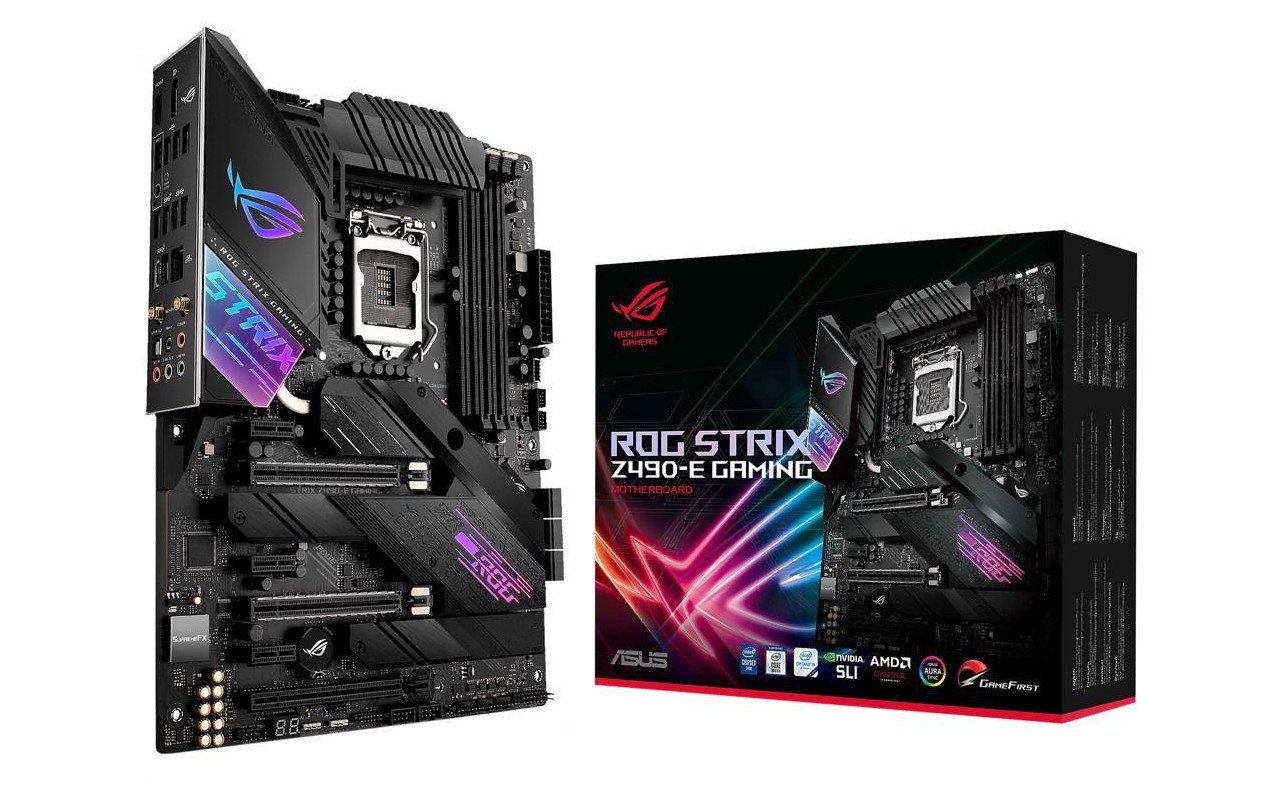
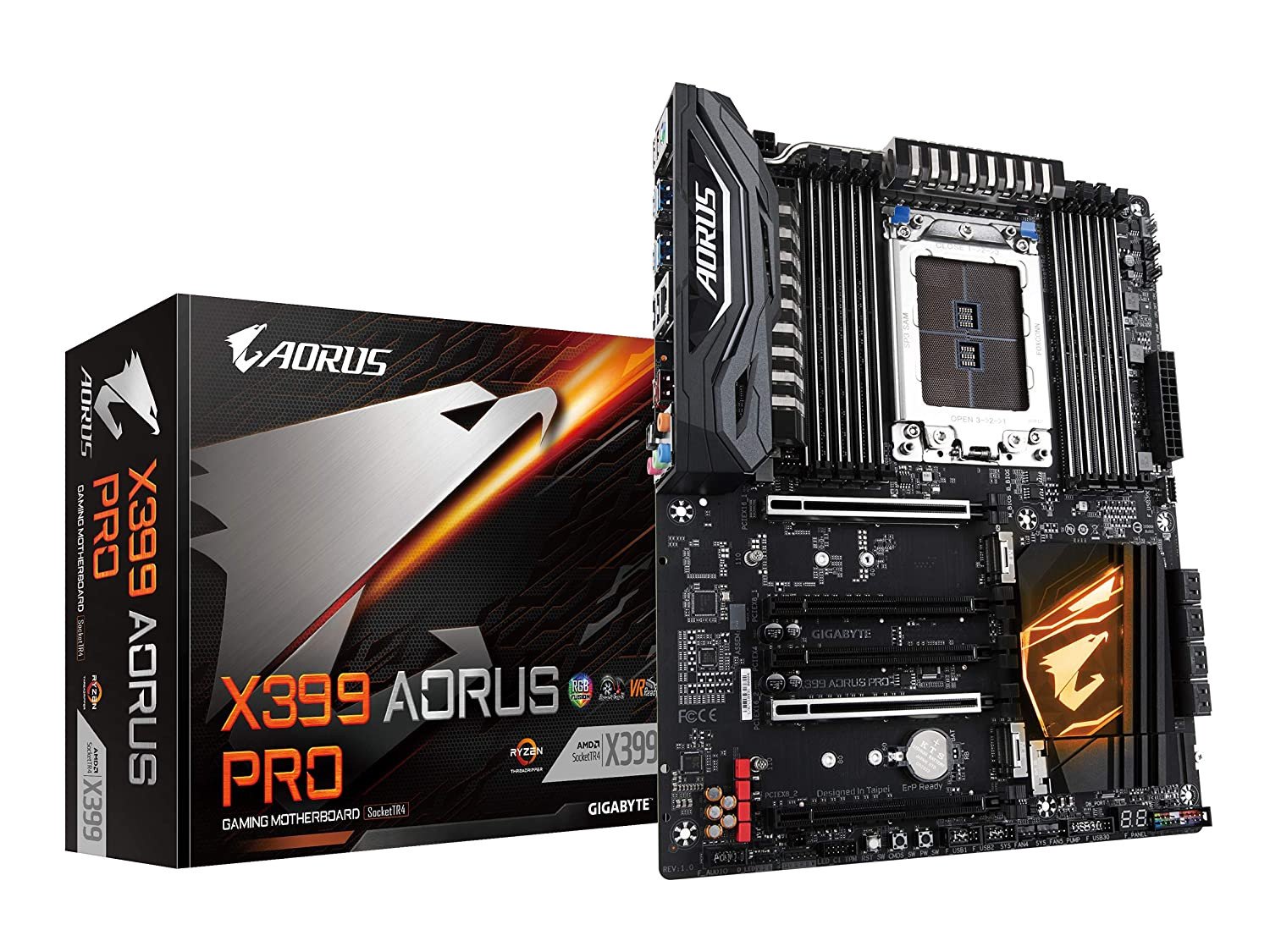
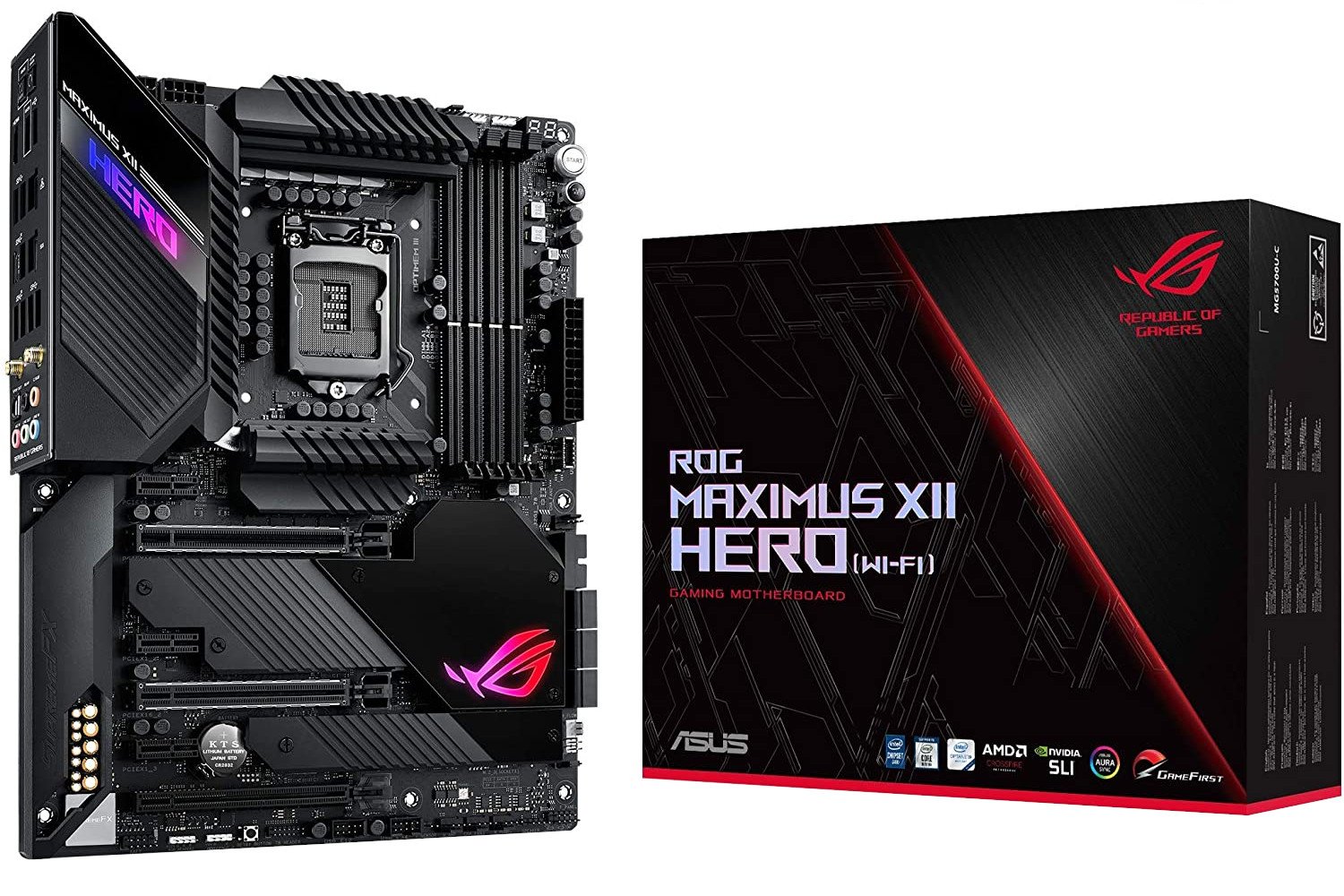

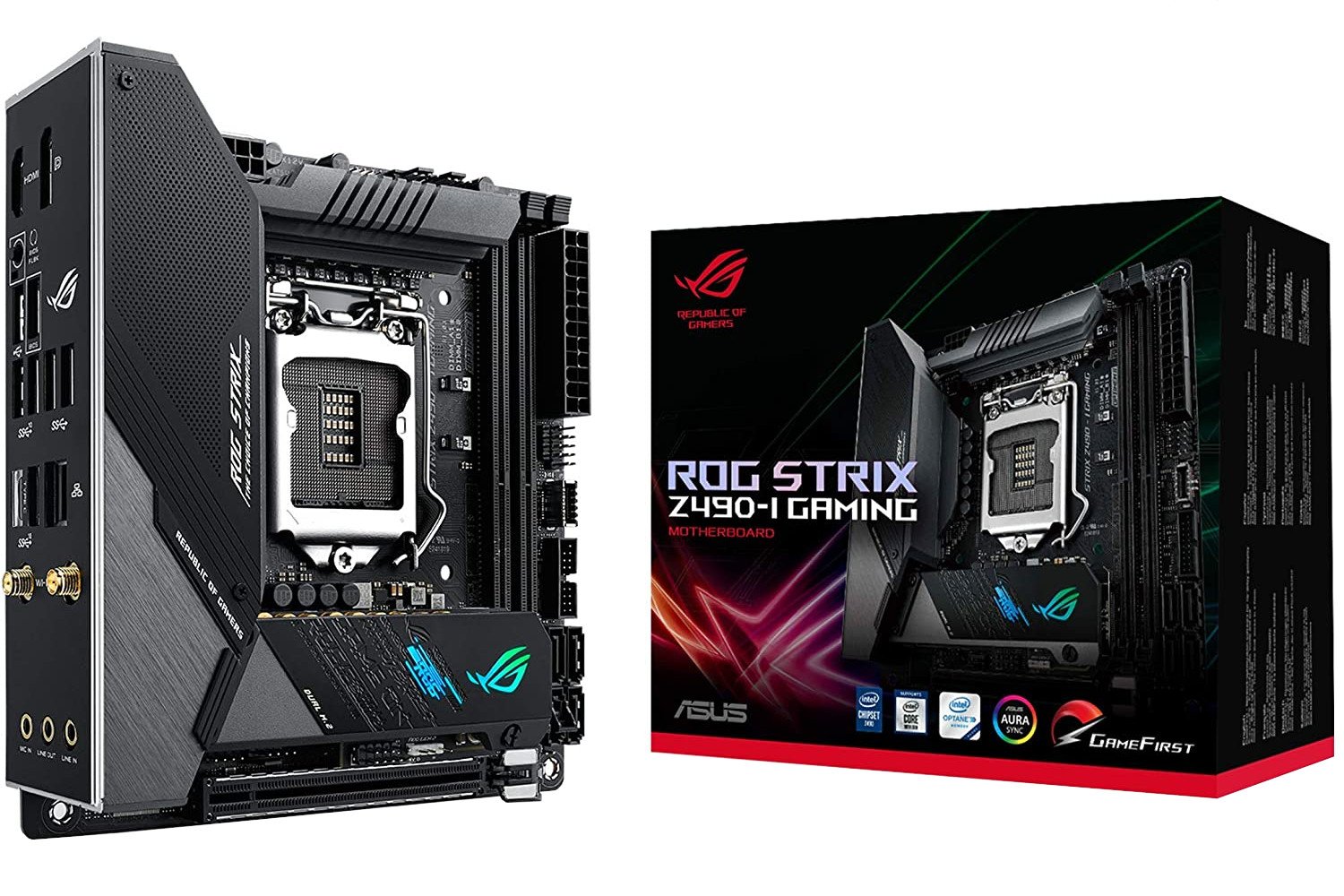
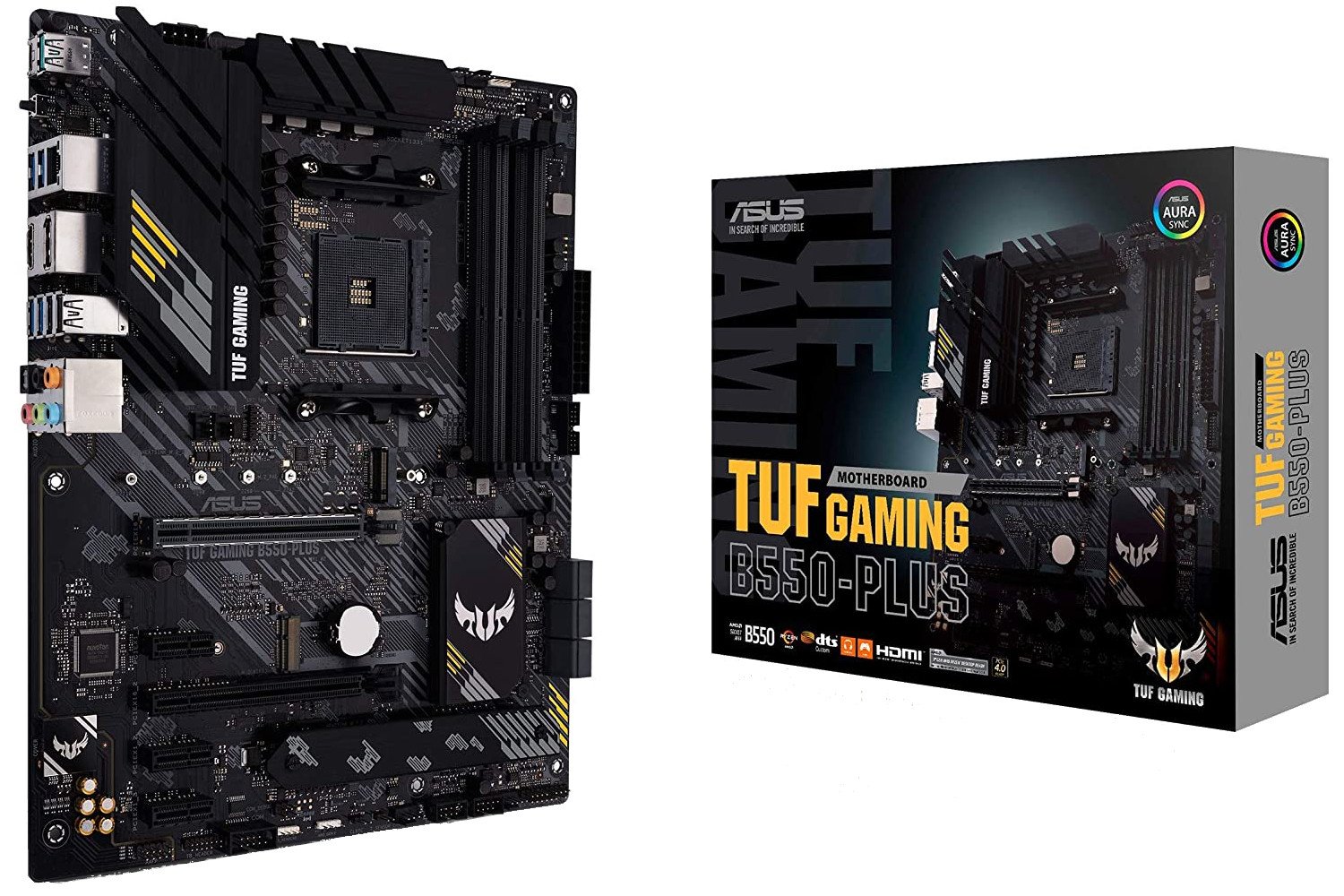
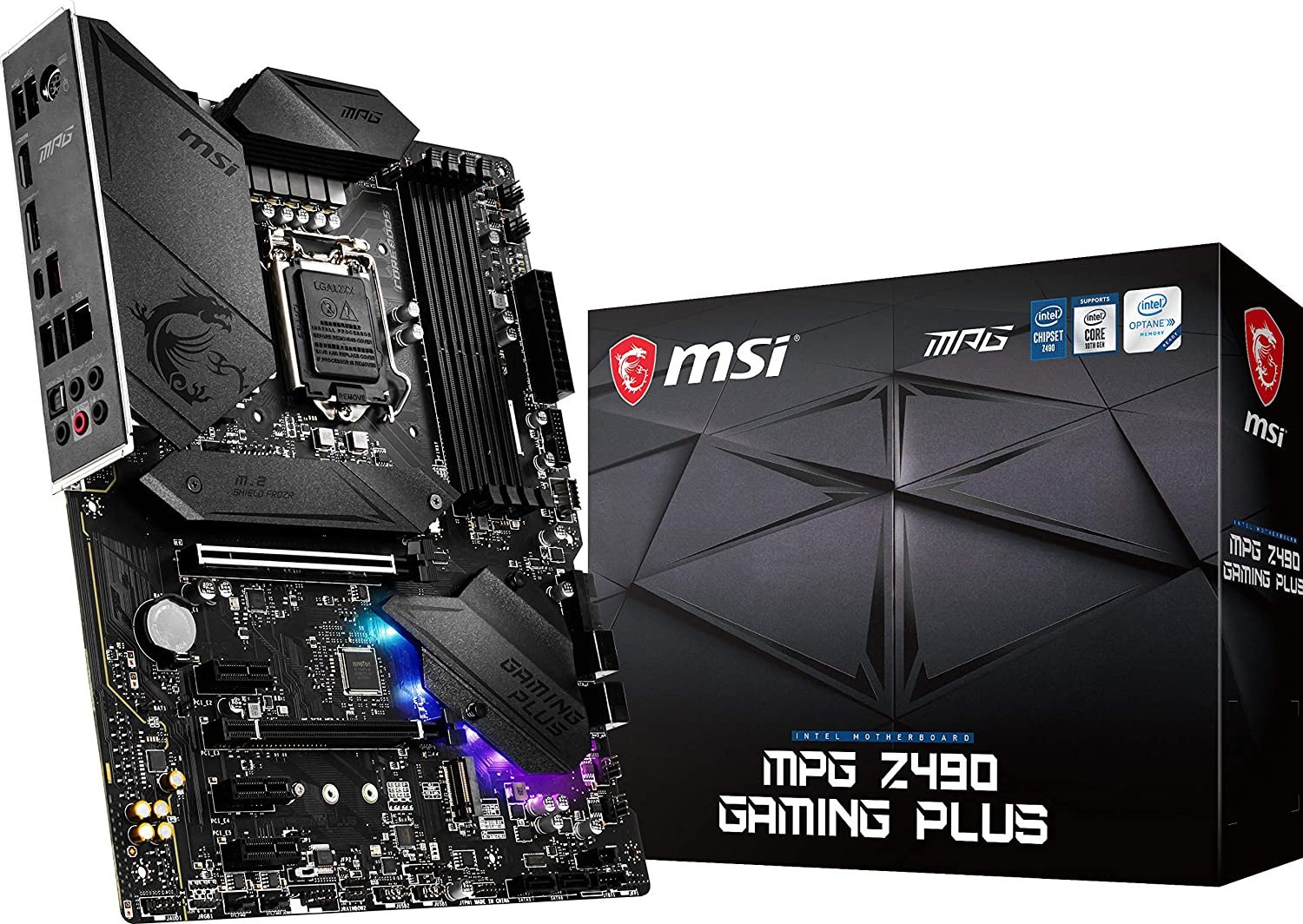


0 comments:
Post a Comment